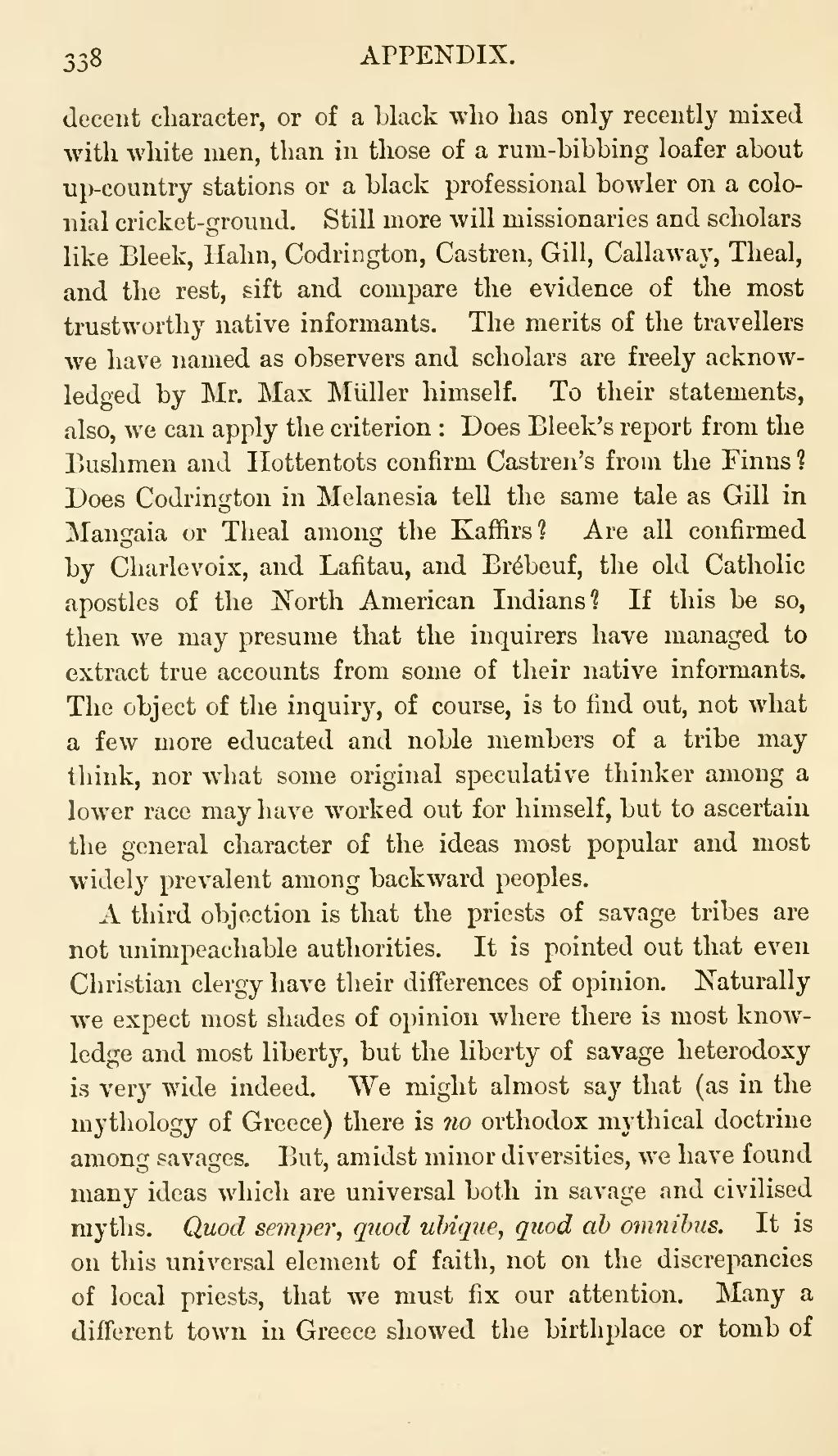decent character, or of a black who has only recently mixed with white men, than in those of a rum-bibbing loafer about up-country stations or a black professional bowler on a colonial cricket-ground. Still more will missionaries and scholars like Bleek, Hahn, Codrington, Castren, Gill, Callaway, Theal, and the rest, sift and compare the evidence of the most trustworthy native informants. The merits of the travellers we have named as observers and scholars are freely acknowledged by Mr. Max Müller himself. To their statements, also, we can apply the criterion: Does Bleek's report from the Bushmen and Hottentots confirm Castren's from the Finns? Does Codrington in Melanesia tell the same tale as Gill in Mangaia or Theal among the Kaffirs? Are all confirmed by Charlevoix, and Lafitau, and Brébeuf, the old Catholic apostles of the North American Indians? If this be so, then we may presume that the inquirers have managed to extract true accounts from some of their native informants. The object of the inquiry, of course, is to find out, not what a few more educated and noble members of a tribe may think, nor what some original speculative thinker among a lower race may have worked out for himself, but to ascertain the general character of the ideas most popular and most widely prevalent among backward peoples.
A third objection is that the priests of savage tribes are not unimpeachable authorities. It is pointed out that even Christian clergy have their differences of opinion. Naturally we expect most shades of opinion where there is most knowledge and most liberty, but the liberty of savage heterodoxy is very wide indeed. We might almost say that (as in the mythology of Greece) there is no orthodox mythical doctrine among savages. But, amidst minor diversities, we have found many ideas which are universal both in savage and civilised myths. Quod semper, quod ubique, quod ab omnibus. It is on this universal element of faith, not on the discrepancies of local priests, that we must fix our attention. Many a different town in Greece showed the birthplace or tomb of
